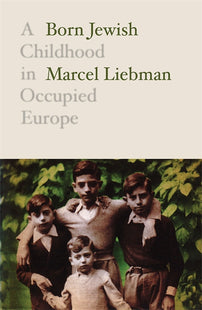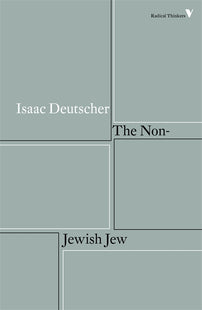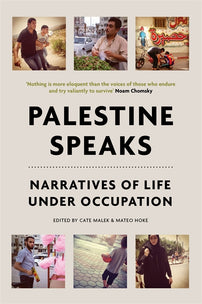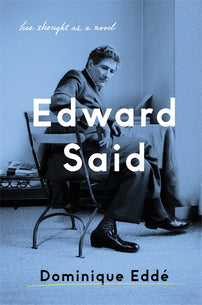Memory Does Not Belong to the Victors" Open Letter to Alain Finkielkraut
Recent months have seen French politics rocked by two political events: the gilets jaunes protests and the Emmanuel Macron's public statement calling anti-Zionism a form of anti-semitism. In this, an open letter to philosopher Alain Finkielkraut following the attack on him recently in Paris during one of the protests, Dominique Eddé powerfully writes of the pains of the Palestinian people and struggle for a better world.

Dear Alain Finkielkraut,
Let me start by saying ‘salamtak’, the word used in Arabic to offer best wishes to those who escape an accident or, as in your case, an attack. The violence and hatred that was directed at you has not only outraged me, it has hurt me. Can I find in this situation the words that will simultaneously express my solidarity and the substance of my thoughts? I’ll try to do that. Because by addressing you I am also addressing, through you, all those who want peace.
Maybe you remember how we met in Paris in the early 1980s, at the Éditions du Seuil, and have carefully avoided each other since then. This was during Israel’s invasion of Lebanon, and you could not stand hearing me say how a building collapsed like a house of cards under the impact of an Israeli cluster bomb. That truth hurt your own truth too much to reach home. It was the unexpected arrival of the Israeli historian Saul Friedländer, in the office where we happened to be, that helped set the record straight. He knew the facts, and I felt relief. You left without letting me show my anger; you only had room for your own. In the decades that followed, the syndrome worsened. No matter how much you loved Levinas, the consummate thinker of otherness, you found it increasingly difficult, if not impossible, to give up even an inch of territory to anyone you felt as a threat.
This insulating measure, perfectly understandable given your history, would not have posed any problem if it had not turned into an intellectual crusade. Your way of getting worked up over any disagreement has always aroused in me, each time I’ve listened to you, both empathy and exasperation. Empathy, because I know you are sincere, and exasperation, because your intelligence is definitely more geared to being heard than to hearing the other.
Even your clearest arguments are repeatedly stymied by your allergy to anything that might attenuate or qualify them. Salafist Islam, for example, our common enemy and, from personal experience, mine before it was yours, has more than once led you to confuse two billion Muslims and a thousand-year-old culture with a book, a verse, a slogan. For you, time stopped when Nazism beheaded humanity. There was no future and no possible path except back to the past – a return to the civilization that a European could dream of before the disaster. I have all the less difficulty in understanding this because I have the same nostalgia as you for the intellectual projects of the early twentieth century. But you have allowed yourself a fusion of nostalgia and thought that puts the latter in the service of the former, at the cost of lucidity. More worryingly, you have renounced in this ‘world of yesterday’ what was most pleasing about it: its cosmopolitanism, its mixture. Any colours, languages, faces or memories that come from elsewhere and pollute the world you regret, you want to disappear or have forgotten. You say that France faces two threats: Judeophobia and Francophobia. Why do you stubbornly refuse to include Islamophobia in your list of concerns? To make room for Muslims does not mean making room for Islamism. It is even the opposite. By being unwilling and unable to share your unease with that of a considerable number of French Muslims, you are doing precisely what Zionism did in its early days, when it claimed that the land of Israel was ‘a land without people for a people without a land’. You deny one part of reality to make another part exist. Without taking the trouble to understand, in passing, the frustration and silent rage of those whom your words consign to oblivion.
You have given in to what Canetti brilliantly warned us against in his Crowds and Power. You have developed that ‘contact phobia’ which leads a community to fold up like a closed fist and adopt a position of blind defence, blinkered to anything outside of itself. This posture, which is typical of a certain Israeli policy rather than of Jewish thought, generates, among other things and beyond your own case, a tension that makes it impossible to find peace. This is all the more unfortunate given that the world you mourn may well be very close to that of a large number of people who live in Arab countries under the control of mafia-type and/or Islamist regimes today. Why do these people mean so little to you? Do you prefer to bank on your declared enemies rather than give potential friends a chance? Renunciation of the ideal, the necessity of which I discuss at length in my latest book on Edward Said, is a step you are unwilling to take. By ideal here I mean a self-projection promoted to the level of a collective project. In contrast to this, the only political dream that is worthwhile, and that we can also call utopia, is one that acknowledges reality and proposes to make the most of it, rather than compare it with a fantasy. It is the very opposite of the closed-circuit ideal that functions like a childish fixation and ends up with the sudden discovery, through a bad encounter, that it simply feeds the hatred of those who cannot afford not to hate. The man who insulted you insulted everything at once: your person, Jews, and those disgusted by the disgraceful situation. However, saying this is not enough to fight it, still less to exhaust the subject. In this connection, I thank you for saying on the radio that anti-Semitism and anti-Zionism cannot be simply confused.
Perhaps you will have the government’s ear and let them know that silencing the rabid will not silence opponents of the Israeli regime. In France, people are too used to taking words and minds hostage, favouring emotion over reason, whenever the question of Israel and Palestine is raised. They are now being asked to acknowledge, without hesitation, that anti-Semitism and anti-Zionism are synonyms. Let’s start by understanding what is meant by Zionism and therefore by anti-Zionism. If anti-Zionist means being against the existence of Israel, I am not anti-Zionist. If, on the other hand, it means being against the strictly Jewish state of Israel that Netanyahu and many others want, then yes, I am. Just as I am against any ethnic cleansing. Was Mandela anti-Semitic because he championed equal rights for Palestinians and Israelis? Anti-Semitism and Holocaust denial are scourges I have tirelessly fought against, like many other Arab intellectuals. We should not now be asked to endorse another negationism – one that liquidates our memory – simply because we have been defeated. Yes, the Arab world is dead. Yes, all the countries in the region where I live are divided and in pieces. Yes, the Palestinian resistance has failed. Yes, most of the so-called Arab revolutions were confiscated. But as far as I know, memory is not just the property of the victors, those in power. It is not yet forbidden to think when you are on your knees.
One last word before I sign off. I work in Lebanon with women exiled by war, from Syria, Palestine and Iraq. They are embroiderers. Some of them are Christian, most of them Muslim. Among the latter, three have lost a son. All of them are religious. God is, so to speak, their only recourse, their only reason for living. Gathered around a large table covered by a canvas cloth, a dozen of us designed a cargo ship carrying a country. Each woman contributed her own piece. One of these was a carpet, others included a doorway, a Roman column, an olive grove, a water wheel, a corner of the sea, a village on the Euphrates river. When the question arose of introducing or not a place of worship, the person who was running the workshop wanted there to be none. In the face of general perplexity, it was proposed that such places, if there were to be any, should be discreet. To the suggestion of adding a synagogue, one of the women immediately reacted with these words: ‘If there is a church and a mosque, you have to put a synagogue so that everyone can go and pray wherever they want.’ And she added, with the vocabulary at her disposal: ‘We are not anti-Semites, we are anti-Zionists.’ Everyone agreed, arguing that ‘in the old days’ all people there lived together.
Dear Alain Finkielkraut, I ask you and I ask political leaders not to underestimate these small victories of common sense over stupidity, of the banality of good over the banality of evil. Prefer real opponents who talk to you to false friends who feel sorry for you. Help us to help you in the fight against anti-Semitism: do not confine this to the constant use of injunction, intimidation and legal threat. Those who are treated as anti-Semites without being so are no less insulted than you are. Do not dismiss so readily the experiences of those who have a different representation of the world from yours. If anti-Zionism is no longer an appropriate word, suggest one that is commensurate with Israel’s occupation, its confiscation of land and houses, and we will use it in return. It is true that many of us have given up talking. But do not trust silence when this is only a temporary absence of noise. An enforced silence can give birth to monsters. In conclusion, I propose this Igbo proverb: ‘The world is like a dancing mask: to see it well, you must not stay in the same place.’
Dominique Eddé is a novelist and essayist. Her latest book, Edward Said: His Thought as a Novel, will be published by Verso in August 2019.
From L’Orient--Le Jour, Beirut; 9 March 2019. Translated by David Fernbach.
[book-strip index="1" style="display"]


